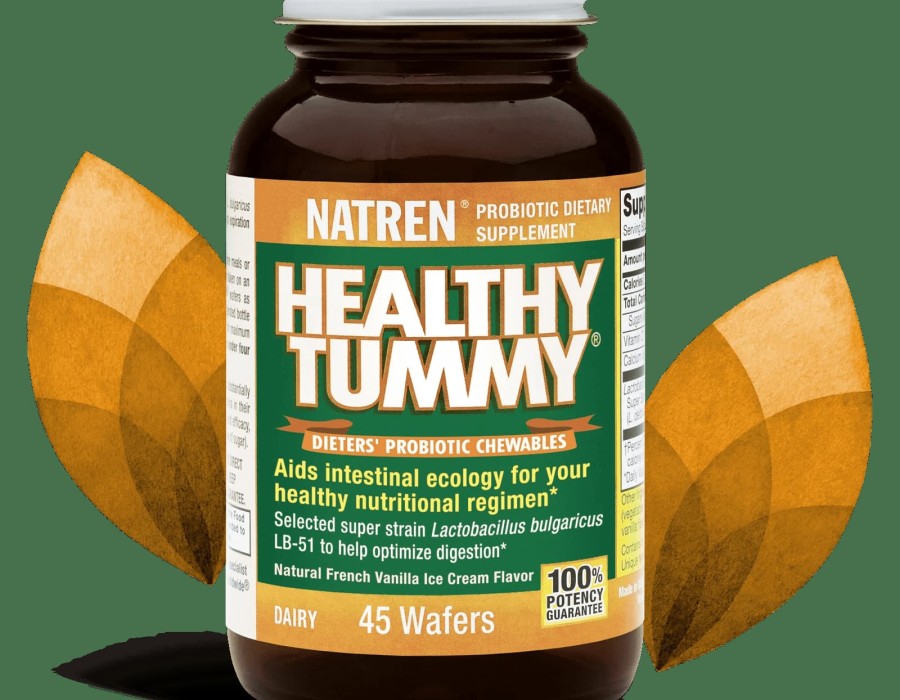Gastroesophageal reflux disease (GERD) is a chronic condition that affects millions of people worldwide. Characterized by frequent heartburn, regurgitation, and difficulty swallowing, GERD can significantly impact an individual’s quality of life. While traditional treatments often focus on antacids and proton pump inhibitors, there is a growing interest in the potential role of probiotics for GERD management.
This article delves into how probiotics can contribute to alleviating GERD symptoms and improving overall digestive health.
Understanding GERD and Its Symptoms
GERD occurs when stomach acid frequently flows back into the esophagus, the tube connecting the mouth and stomach. This backward flow, known as acid reflux, can irritate the lining of the esophagus, leading to a range of uncomfortable symptoms. Common manifestations of GERD include chronic heartburn, a sour taste in the mouth, chest pain, and difficulty swallowing. Many individuals also experience a sense of lump in the throat or excessive salivation. The severity and frequency of these symptoms can vary, and in some cases, they may lead to complications such as esophagitis or Barrett's esophagus.
While lifestyle factors such as diet, weight, and smoking can exacerbate GERD symptoms, the condition is also influenced by the gut microbiome—the community of bacteria residing in our digestive tract. An imbalance in this microbiome can lead to digestive disorders, including GERD. This is where probiotics come into play. Probiotics are live microorganisms that, when taken in adequate amounts, confer health benefits on the host. They are often referred to as “good” bacteria because they help maintain a healthy gut environment.
The Role of Probiotics in Gut Health
The gut microbiome is essential for various bodily functions, including digestion, immune response, and even mood regulation. A healthy balance of bacteria in the gut can promote optimal digestion and prevent the overgrowth of harmful bacteria that may contribute to gastrointestinal disorders. Probiotics help restore this balance by introducing beneficial bacteria into the digestive system.
Research has shown that different strains of probiotics can offer varying benefits. For instance, Lactobacillus and Bifidobacterium are two common strains found in many probiotic supplements and fermented foods. These strains have been shown to enhance gut health by improving digestion, reducing inflammation, and modulating the immune system. Such benefits can be particularly relevant for individuals suffering from GERD, as an imbalanced gut microbiome may exacerbate symptoms and contribute to the persistence of this condition.
Probiotics for GERD: Evidence and Insights
A growing body of research suggests that probiotics for GERD management may be an effective adjunct to traditional treatment methods. Several studies have indicated that certain probiotic strains can help reduce the frequency and severity of GERD symptoms. For example, a study published in the Journal of Clinical Gastroenterology found that participants who supplemented with probiotics experienced a significant reduction in heartburn and regurgitation compared to those who did not. This improvement is thought to be linked to the ability of probiotics to enhance gut motility and reduce inflammation in the esophagus.
Moreover, probiotics have been shown to promote the integrity of the gut lining. A compromised gut barrier can lead to increased acid reflux and heightened sensitivity to stomach acid. Probiotics help strengthen this barrier, potentially reducing the likelihood of acid reflux episodes. Additionally, by promoting the production of mucus in the gastrointestinal tract, probiotics can further protect the esophagus from the damaging effects of stomach acid.
Incorporating Probiotics into Your Diet
For those looking to harness the benefits of probiotics for GERD management, incorporating probiotic-rich foods into the diet is a great starting point. Fermented foods such as yogurt, kefir, sauerkraut, kimchi, and miso are all excellent sources of beneficial bacteria. These foods not only provide probiotics but also contain essential nutrients that support overall health.
In addition to dietary sources, probiotic supplements are widely available and can offer a more concentrated dose of beneficial bacteria. When choosing a probiotic supplement, it's crucial to select one that contains specific strains known to be effective for digestive health, such as Lactobacillus reuteri or Bifidobacterium lactis. As with any supplement, it's advisable to consult with a healthcare professional before beginning a new regimen, especially for individuals with pre-existing health conditions.
Lifestyle Modifications to Support Probiotic Efficacy
While probiotics can be a powerful ally in managing GERD symptoms, they are most effective when combined with healthy lifestyle choices. Dietary modifications play a crucial role in alleviating GERD symptoms. Individuals should consider adopting a diet rich in whole foods, including fruits, vegetables, whole grains, and lean proteins. Avoiding trigger foods—such as spicy dishes, chocolate, caffeine, and acidic foods—can also help minimize symptoms.
Maintaining a healthy weight is another significant factor in managing GERD. Excess weight can increase abdominal pressure, leading to a higher likelihood of acid reflux. Incorporating regular physical activity into daily routines can aid in weight management and promote better digestion. Additionally, individuals should consider eating smaller, more frequent meals to reduce the burden on the digestive system.
The Future of Probiotics in GERD Management
As research continues to explore the connection between probiotics and digestive health, the potential for probiotics to serve as a complementary treatment for GERD looks promising. While probiotics are not a cure-all, their ability to restore gut balance and improve digestive function makes them a valuable tool in managing GERD symptoms. The integration of probiotics into a comprehensive treatment plan, which includes lifestyle changes and traditional medications, could lead to more effective symptom management and enhanced quality of life for those suffering from GERD.
In summary, the evidence supporting the use of probiotics for GERD is compelling. By fostering a healthier gut environment and addressing some of the underlying causes of GERD symptoms, probiotics can play a crucial role in improving digestive health. As we continue to unveil the mysteries of the gut microbiome, it becomes increasingly clear that nurturing our gut health through probiotics may be a key factor in managing GERD and promoting overall well-being.





Comments